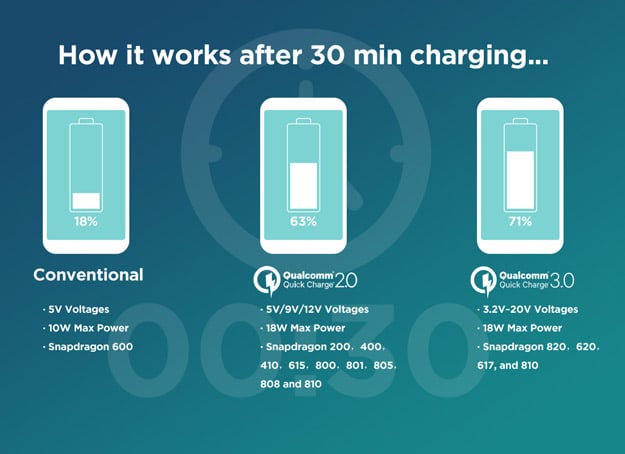Google Rails Against Proprietary USB-C Fast Charging On Android Devices
Qualcomm addressed these concerns earlier this year in a statement, writing:
When an OEM chooses to implement Quick Charge into their device, they can configure the voltage to fit within the specifications of the USB Type-C standard. We have received no reports of user experience or device malfunction issues with or without USB Type-C connectors.
Google engineer Benson Leung, who has been a crusader against shoddy USB-C cables and accessories, challenged Qualcomm’s assertion that it could have its cake and eat it too. Leung wrote late last year, “Can Qualcomm QC and USB Type-C coexist on the same connector? tl;dr : Type-C Spec forbids it.”
Google has now thrown its hat into the ring by posting an update to its Android Compatibility Definition Document (PDF). In it, Google specifically calls out Android OEMs that use proprietary fast charging solutions that buck USB-C standards. To put it lightly, Google is warning OEMs to knock it off. But if that warning isn’t enough to top OEMs, Google is fully prepared to make its recommendations mandatory.
This threat is made clear in the following passage from the CDD:
Type-C devices are STRONGLY RECOMMENDED to not support proprietary charging methods that modify Vbus voltage beyond default levels, or alter sink/source roles as such may result in interoperability issues with the chargers or devices that support the standard USB Power Delivery methods. While this is called out as "STRONGLY RECOMMENDED", in future Android versions we might REQUIRE all Type-C devices to support full interoperability with standard Type-C chargers.
Google is clearly looking to make sure that no matter which USB-C charger you use for your device, it will work as advertised. And the company is also looking to minimize the damage that can be caused to devices using accessories that are clearly out of spec (as Leung knows all too well).
Will Google eventually go nuclear on OEMs with regards to USB-C charging standards? That remains to be seen, but it’s a worthy cause to pursue.



